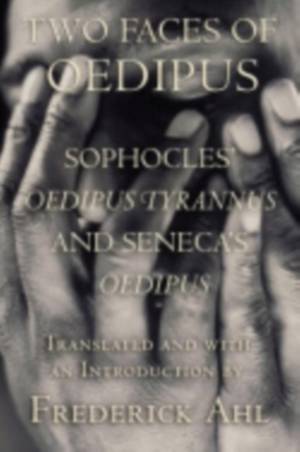
- Afhalen na 1 uur in een winkel met voorraad
- Gratis thuislevering in België vanaf € 30
- Ruim aanbod met 7 miljoen producten
- Afhalen na 1 uur in een winkel met voorraad
- Gratis thuislevering in België vanaf € 30
- Ruim aanbod met 7 miljoen producten
Omschrijving
Sophocles' Oedipus Tyrannus is the most famous of ancient tragedies and a literary masterpiece. It is not, however, the only classical dramatization of Oedipus' quest to discover his identity. Between four and five hundred years after Sophocles' play was first performed, Seneca composed a fine, but neglected and often disparaged Latin tragedy on the same subject, which, in some ways, comes closer to our common understanding of the Oedipus myth. Now, modern readers can compare the two versions, in new translations by Frederick Ahl.Balancing poetry and clarity, yet staying scrupulously close to the original texts, Ahl's English versions are designed to be both read and performed, and are alert to the literary and historical complexities of each. In approaching Sophocles anew, Ahl is careful to preserve the richly allusive nature and rhetorical power of the Greek, including the intricate use of language that gives the original its brilliant force. For Ahl, Seneca's tragedy is vastly and intriguingly different from that of Sophocles, and a poetic masterpiece in its own right. Seneca takes us inside the mind of Oedipus in ways that Sophocles does not, making his inner conflicts a major part of the drama itself in his soliloquies and asides. Two Faces of Oedipus opens with a wide-ranging introduction that examines the conflicting traditions of Oedipus in Greek literature, the different theatrical worlds of Sophocles and Seneca, and how cultural and political differences between Athenian democracy and Roman imperial rule affect the nature and conditions under which the two tragedies were composed. This book brings two dramatic traditions into conversation while providing elegant, accurate, and exciting new versions of Sophocles' and Seneca's tragedies.
Specificaties
Betrokkenen
- Auteur(s):
- Vertaler(s):
- Uitgeverij:
Inhoud
- Aantal bladzijden:
- 280
- Taal:
- Engels
Eigenschappen
- Productcode (EAN):
- 9780801473975
- Verschijningsdatum:
- 15/02/2008
- Uitvoering:
- Paperback
- Formaat:
- Trade paperback (VS)
- Afmetingen:
- 160 mm x 227 mm
- Gewicht:
- 367 g

Alleen bij Standaard Boekhandel
Beoordelingen
We publiceren alleen reviews die voldoen aan de voorwaarden voor reviews. Bekijk onze voorwaarden voor reviews.









